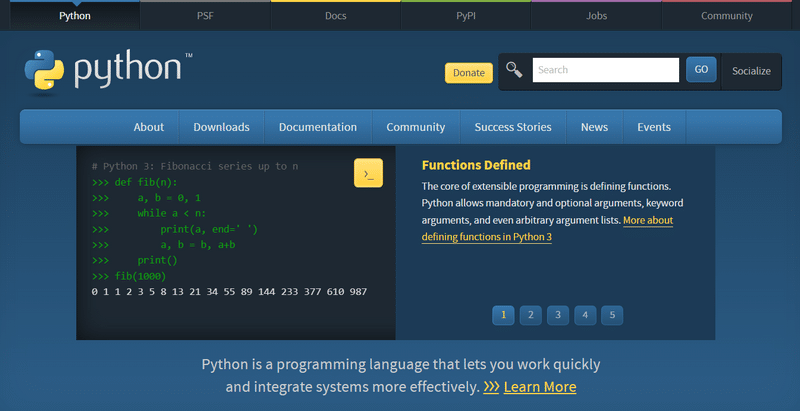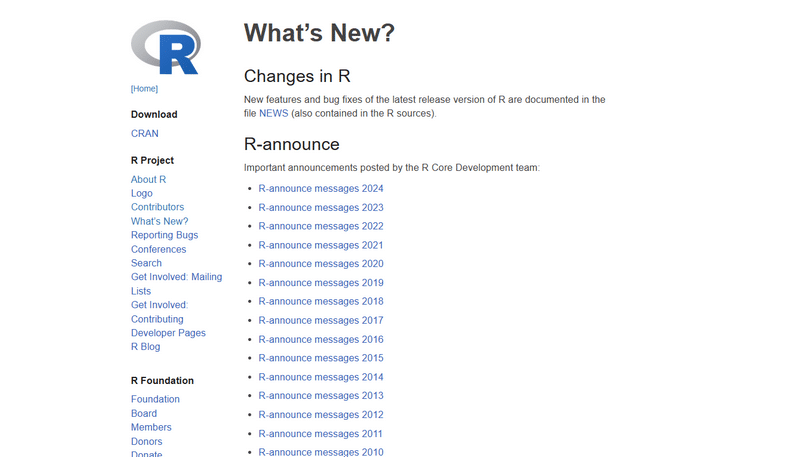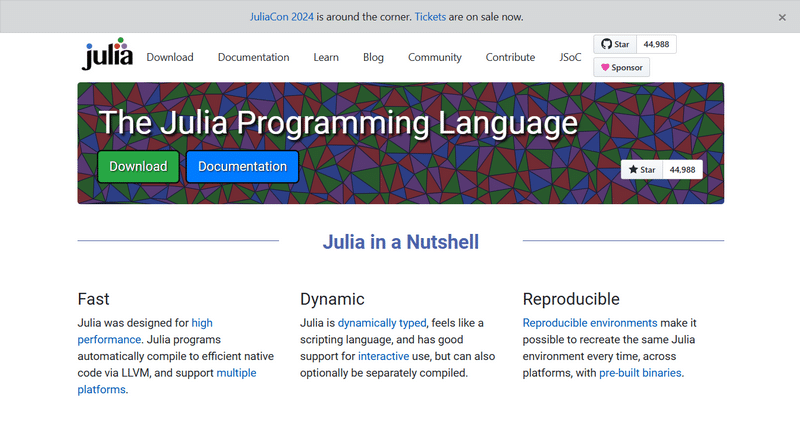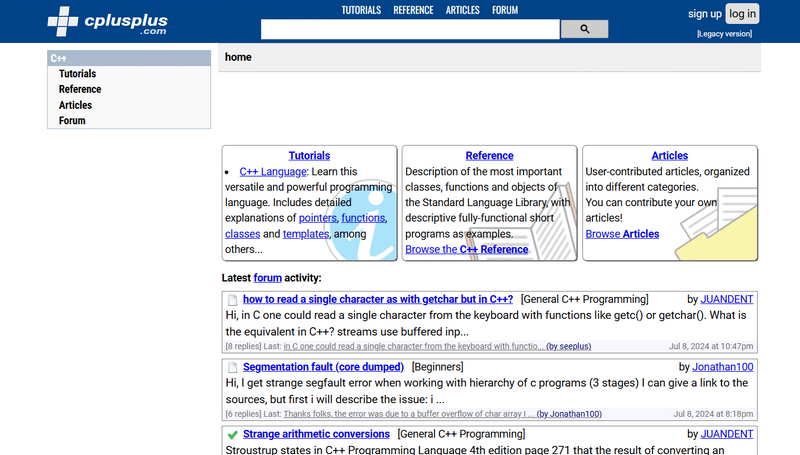Looking for the best programming languages for AI? We’ve got the top 5 popular answers that you must try!
Believe it or not, one such field that still has roped in the growth phase is artificial intelligence (AI). According to a Grand View Research report, the global artificial intelligence market is expected to reach USD 1,811.8 billion by 2030, growing at a CAGR of 37.3% from 2023 to 2030. The growth has been so overwhelming that it has increased the demand for proficient AI developers and created the need to identify the most effective programming languages for AI development.
The efficiency and effectiveness of AI projects depend, to a great extent, on the choice of a programming language. In a Stack Overflow survey in 2023, 70% of developers on AI and machine learning projects preferred working with Python.
Nevertheless, other languages are not standing still, each having its benefits in specific applications of AI. What are the best languages for AI programming, along with Python? Let’s take a look!
5 Best programming languages for AI
1. Python
- Why it’s popular: Python has remained the most used language for AI development because of its simplicity, readability, and comprehensive library support.
- Key Libraries: TensorFlow, Keras, PyTorch, sci-kit-learn, and NLTK.
- Use Cases: Machine learning, deep learning, natural language processing, and data analysis.

Python – One of the best programming languages for AI.
Python has emerged as the go-to language for AI development, and for good reason. Its popularity in the AI community derives from many factors that uniquely make it well-suited to artificial intelligence’s complex and wide-reaching domain.
Guido van Rossum very thoughtfully designed this best AI Programming Language in the late 1980s. His philosophy of code readability and simplicity influenced the design.
These features have contributed significantly to its wide adoption in AI, where readability and code expressiveness are vital for developing and maintaining complex algorithms.
Python Key Features for AI Development
- Simplicity and Readability: Python’s syntax is clear and concise, allowing developers to focus on solving AI problems rather than getting bogged down in complex language structures.
- Large Suites of Libraries: Python has several libraries entirely focused on or have relevant sections for AI and Machine Learning.
- TensorFlow: Google’s Open Source Library for Machine Learning and Deep Learning.
- PyTorch: Deep Learning Framework by Facebook
- Skikit-Learn: An all-rounder in machine learning libraries.
- NumPy: Essential for numerical computing
- Pandas: This is a power tool for data manipulation and analysis.
- Flexibility: Python supports many programming paradigms, such as object-oriented, imperative, and functional. This feature enables a developer to choose the paradigm that best fits the task for AI projects.
- Platform Independence: Python code can be executed on numerous platforms with extremely few changes, and thus, AI solutions can be easily implemented in different environments.
- Extensive community support: This means a very vibrant Python community is always helping to upgrade existing libraries and build new tools for artificial intelligence.
2. Java
Why it’s so popular: Java is known for its portability, scalability, and robustness, thus being very applicable in large AI programs.
Key libraries: Weka, Deeplearning4j, and MOA.
Use Cases: Enterprise-level AI applications, natural language processing, and neural networks.

Java – One of the best programming languages for AI.
The second best programming languages for AI on this list is Java. Though not as profound as Python in AI, Java is never behind when considering enterprise-level AI applications. Its robustness, scalability, and long-time presence in software development make it a reliable choice for many AI projects.
Java was developed by James Gosling at Sun Microsystems, now part of Oracle, and released in 1995. Its philosophy of “write once, run anywhere” made it rather famous for developing cross-platform applications, a capability that has been extended in its usage within AI.
Java Key Features of AI Development
- Performance: Since Java is a compiled language and has JIT compilation, it is better at performance compared to interpreted languages, very essential in computationally-intensive AI tasks.
- Scalability: It is scalable and, hence, appropriate for large applications. This makes Java quite relevant to enterprise-level artificial intelligence systems that need to process vast reams of data.
- Robust Ecosystem: Although not as elaborate as that of Python, there are some good libraries and frameworks for AI development in Java, fresh out of the oven:
- Deeplearning4j is a distributed, open-source deep-learning library.
- Weka: A collection of machine learning algorithms for data mining tasks
- Apache Spark with Java API for big data processing and machine learning.
- Strong Typing and OOP: Java offers support for solid typing and OOP, features that assist in building structured and maintainable AI codebases.
- Lookup Multithreading Capabilities: Java is suitable for parallelizing AI algorithms due to its exemplary support of concurrent programming.
3. R
- Why it’s popular: R is an independent and compelling platform for statistical computing and data visualization, so it will always attract many statisticians and data scientists.
- Key Libraries: caret, randomForest, e1071, and ggplot2.
- Use Cases: Data analysis, statistical computing, and machine learning are some of the use cases.

R – One of the best programming languages for AI.
R is a powerful language and environment for statistical computing and graphics, making it a popular choice for certain aspects of AI, particularly in data analysis and statistical learning.
In terms of history, R was created by Ross Ihaka and Robert Gentleman at the University of Auckland, New Zealand, and is named partly after its creators. It was first released in 1993 as an open-source implementation of the S programming language.
R Key Features for AI Development
- Statistical and Mathematical Prowess: R excels in statistical analysis, making it ideal for AI applications heavily reliant on statistical methods.
- Data Visualization: R’s ggplot2 and other visualization libraries make it easy to create insightful visualizations of complex AI model outputs.
- Specialized Packages: R has a vast repository of user-contributed packages (CRAN), many of which are tailored for machine learning and AI:
- caret: A comprehensive package for machine learning
- mlr: Machine learning in R
- Keras: R interface to Keras, a high-level neural network API
- Reproducibility: R’s focus on reproducible research aligns well with AI research and development needs.
- Integration with Other Languages: This best language for AI Programming can be easily integrated with C++, Java, and Python, allowing developers to leverage the strengths of multiple languages.
4. Julia
Why it’s so well-liked: Julia joins the simplicity of Python with the performance of C++ in problems requiring numerical and scientific computing.
Key Libraries: Flux.jl, Knet.jl, and MLJ.jl.
Use Cases: Machine learning, Data Science, High-Performance Numerical Analysis.

Julia – One of the best programming languages for AI
One of the newest programming languages is Julia, and it has been rapidly gaining ground in most areas of scientific computing, data science, and AI. It has combined Python’s usability with C’s performance, so it will be an exciting choice for developing AI.
Julia was developed 2009 by Jeff Bezanson, Stefan Karpinski, Viral B. Shah, and Alan Edelman at MIT. Their first public release was in 2012, and the 1.0 version was released in 2018. In effect, development was inspired by wanting to use a high-performance language for ease of use in scientific computing and analysis.
Julia Key Features for AI Development
- High Performance: Julia was designed to be high-performance, with execution speed comparable to C and Fortran in many cases. This makes it suitable for computationally intensive AI tasks.
- Dynamic Programming: While C++ is statically typed, this best language for AI Programming is dynamically typed. This makes it much more flexible and accessible to prototype, similar to Python.
- Mathematical Syntax: The syntax of Julia is more particularly suited to mathematical and scientific computing, making it natural to express AI algorithms.
- Multiple Dispatch: A feature wherein functions can exhibit different behaviors according to their arguments’ types—very powerful for putting in complicated AI algorithms.
- GPU Support: Native support for GPU computing in Julia is essential in many deep-learning applications. Interoperability: One can directly call C, Fortran, and Python functions from Julia. Hence, it is immediately at least pretty interoperable with the prevailing AI ecosystems.
5. C++
- Why it is so popular: C++ provides high performance and control of system resources—the hallmark feature required by real-time AI systems.
- Key Libraries: Shark, Dlib, OpenCV.
- Use Cases: Development of games, computer vision, and performance-critical applications.

C++ – One of the best programming languages for AI.
The last of the best programming languages for AI we can’t skip is C++. This language is a raw, high-performance programming language that becomes critical in developing artificial intelligence — especially when speed and efficiency are necessary.
Certainly not as commonly used as Python for AI prototyping, it is the language of choice when laying down computationally heavy AI algorithms and systems.
C++ was created in 1979 by Bjarne Stroustrup as an extension to the C programming language. The goal was to extend C with some principles of object-oriented programming without losing efficiency or low-level control.
In all these years, C++ has undergone tremendous evolution. Modern standards, such as C++11, C++14, C++17, and C++20, have added a lot of impressive capabilities in relation to AI developments using C++.
C++ Key Features in AI Development
- High Performance: Near metal performance is delivered due to C++ in particular requirements for computationally heavy AI tasks, such as developing large neural networks or processing big datasets.
- Memory Management: This best language for AI programming gives users excellent control over the allocation and deallocation of memory, which is beneficial in scenarios of artificial intelligence-based optimization in resource-intensive applications.
- Template metaprogramming: This feature enables highly optimized generic code that is useful in implementing efficient AI algorithms working with different data types.
- Object-oriented programming, generic: C++ allows for a few programming paradigms, thus easing flexibility while designing complex AI systems.
- Standard Template Library (STL): STL provides efficient implementations of common data structures and algorithms that are useful in many AI tasks.
- Multithreading Support: C++ greatly supports systems programming in parallelizing AI algorithms through concurrency.
Wrapping up – which are the best programming languages for AI in 2024
AI programming is amazing and rewarding in the fact that it affords one a chance to put technical expertise into action when coming up with original solutions to various types of challenges. However, for efficient AI applications, the correct programming language must be chosen.
There is not one language that makes a perfect fit for all AI projects. Choosing the best language for AI Programming depends on several criteria:
- The requirements of your project
- How easy it is to use
- The availability of needed libraries and frameworks
- How well does it fit with other tools in your tech stack?
Suppose one needs expert support for one’s AI projects. In that case, Innotech Vietnam opens access to a team of skilled professionals in essential programming languages such as JavaScript, Python, and Java. We ensure the right talent onboard to bring your AI vision to life.
Here at Innotech Vietnam, we don’t just serve — developers are your innovation partners. Our AI solutions transform operations and bring modern applications that run seamlessly across many platforms.
Whether you want to enhance existing AI models or pioneer new applications, our team of experts is dedicated to excellence and your success. We know each AI project differs and will adapt our approach to suit your needs.
Don’t let the hustle of creating an AI drag your vision to the ground. Contact Innotech Vietnam today and kick-start an AI project to unlock new possibilities for any business you choose.


